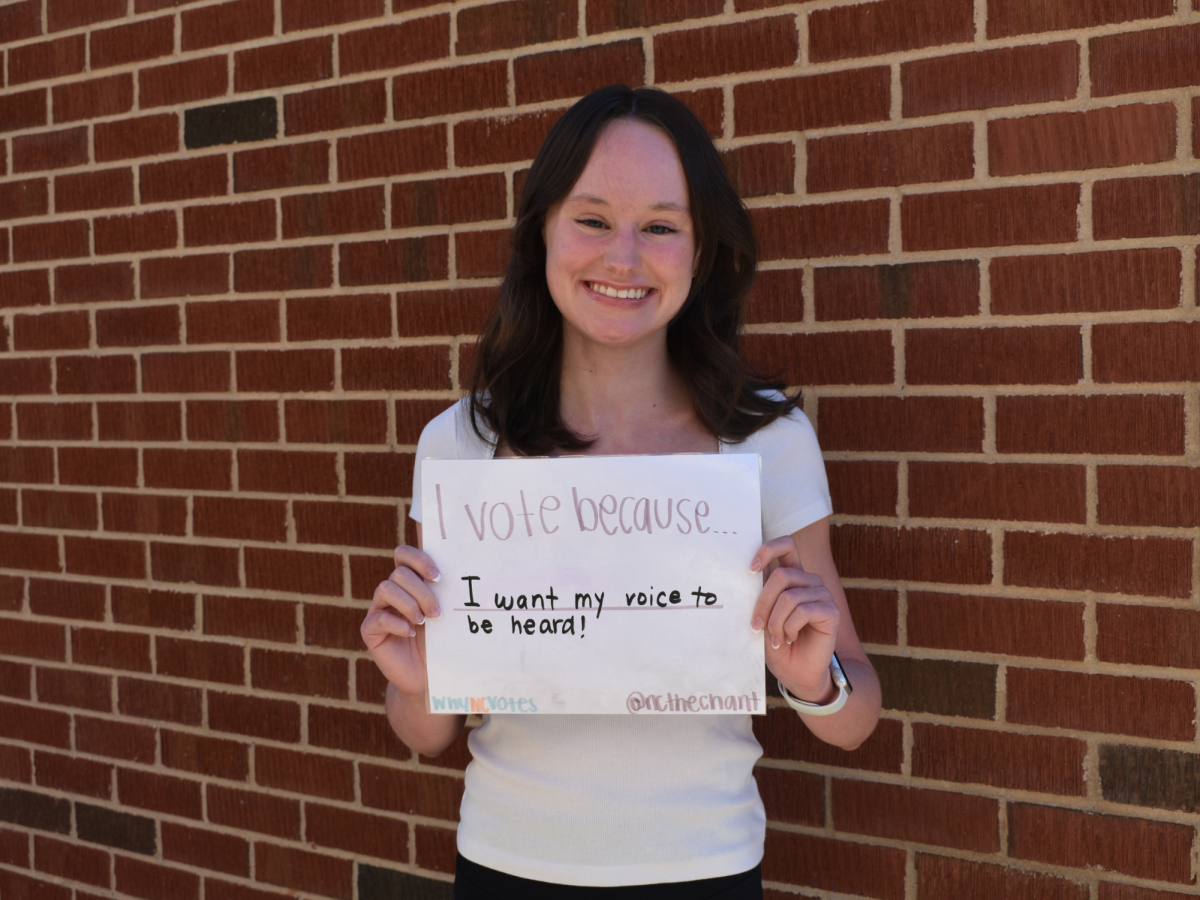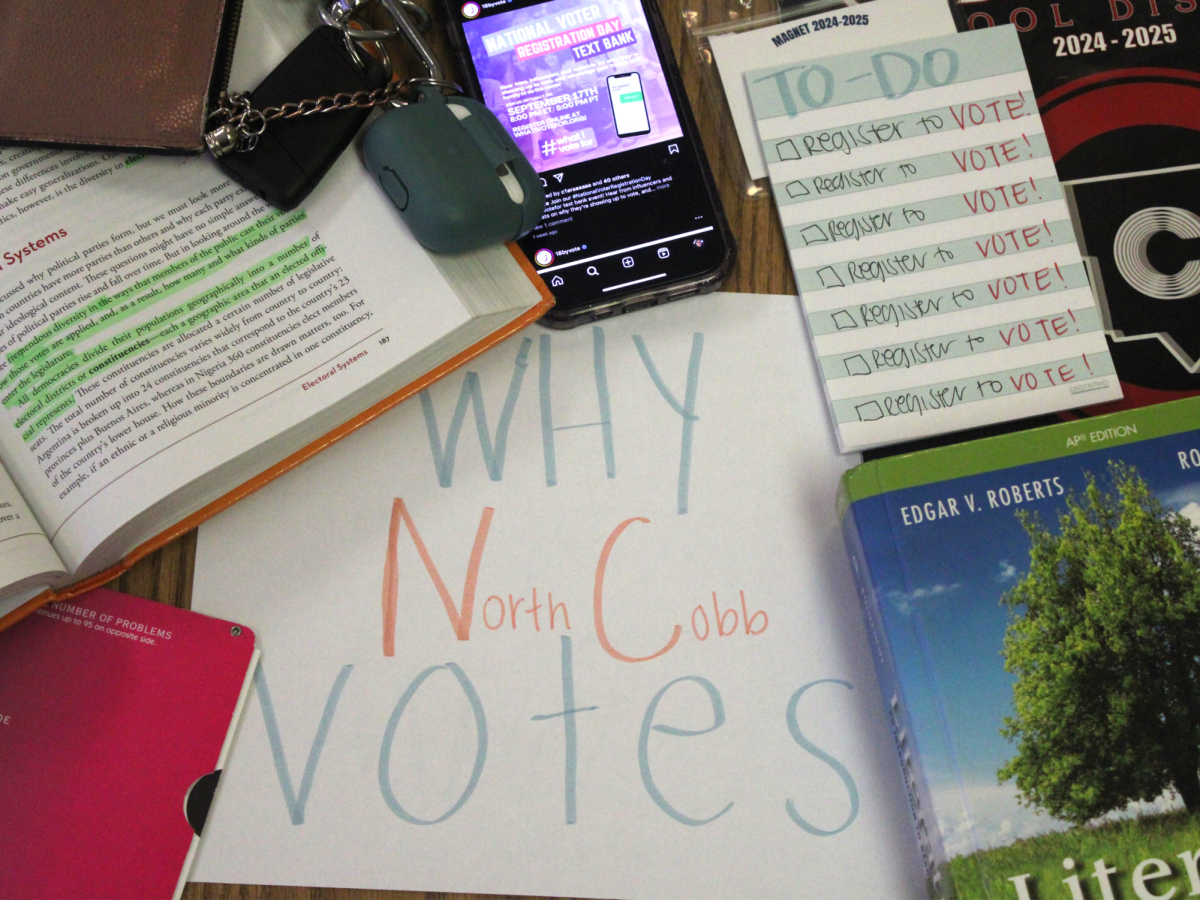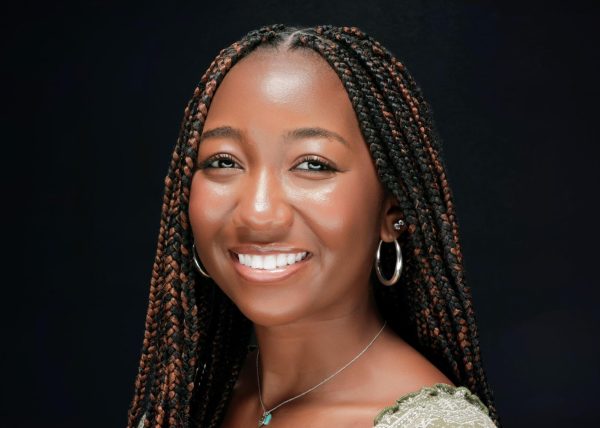As the 2024 presidential election looms, several young people may still harbor inquiries about the what, where, why, how or who this election may impact and the implications of democracy and voting as a whole. For this edition of “Why NC votes,” NC students submitted a series of questions pertaining to voting, civic engagement and democratic systems in the U.S.. With Election Day less than one week away, information stands as a form of political currency. Even for Americans who can not vote due to the restriction of age, understanding the democratic system can encourage them to participate in future elections.
Across juniors and seniors, magnet and non-magnet, NC students reached out and inquired about a variety of aspects concerning civic society. All answers were obtained from nonpartisan sources to ensure that no bias was included.
Question One: How to vote early? (Asked by senior Luis Gonzalez)
Early voting in the state of Georgia can take place in multiple forms. In 2024, early voting in person began October 15 and concluded November 1. State law requires that early voting should occur the fourth Monday before an election, and end the Friday closest to Election Day. By logging on to MyVoterPage.org, registered voters can view their closest polling locations, and craft a plan to ensure their votes can become counted. Citizens require photo identification — a driver’s license or passport — as well as a voter identification card.
If a citizen can not vote in person in the area to which they were registered before election day, they can vote by mail using an absentee ballot. In Georgia, people should request their absentee ballots between 78 and 11 days prior to an election, to ensure that they will arrive at their County Board of Registrar’s Office.
Question Two: How do you differentiate between fake votes or real votes? (Asked by senior Chase Johnson)
Election fraud can occur in multiple ways: paying voters to support a specific candidate, registering to vote under a different name or impersonating another person at the polls stand as obstacles to a clean election. Ways to combat illegitimate votes come from the various boards of elections in counties or cities. For example, 34 states require a form of identification for all citizens to show when they vote.
Question Three: What is the best way to be unbiasedly educated about candidates? (Asked by senior Maya Ulland)
Websites such as VoteSmart.org delivered pertinent, unbiased information about candidates of different races. Citizens can learn about different policies, specific ballot measures and the votes of lawmakers. USA.gov also teaches potential voters how to use voter guides without any particular lean to one side or the other.
Question Four: Why do 17 ½-year-olds register if we can’t vote until we’re 18? (Asked by magnet senior, Media Team Liaison and Lead Page Addie Hill)
Registering to vote at 17 ½ can help streamline the voting process by allowing for young people to become eligible to vote sooner. Registering early ensures that young voters can easily cast their ballots in their first elections without significant stress. In Georgia, the deadline for 17 ½ year olds to vote in the 2024 election fell on October 7.
Question Five: How long will it take to tally votes? (Asked by magnet senior Morgan Day)
Now that the country has moved out of the 2020 pandemic, counting votes during the 2024 election will take less time. However, due to the close nature of this election, the tallying of in-person and mail-in votes will still slow down the process of turning in results. Pandemic-borne concerns have undergone severe reforms in the past four years, which could similarly improve turnaround time. For example, the swing state of Michigan now uses a preprocessing system alongside several other states to combat the lag in vote tallying in previous years.
As for the 2024 election, sources advise that results may take until the very end of November 5, and possibly a few days later. Although systems in place do harbor high levels of improvement, the margin of votes in swing states, for example, can help prevent election officials from delivering a speedy verdict. For this year, the name of the game stands as patience.
Question Six: Why do we only have two parties now? (Asked by junior Amaris Carrion)
Despite George Washington’s warning to the budding world of American politics to avoid political parties, the division of government on ideological lines has existed for almost as long as the U.S. itself. The two-party system in the U.S. emerged from single-member district (SMD) voting with a plurality, where constituencies vote for one representative, and the representative receives the highest number of votes — even if that amount remains less than the majority. According to Duverger’s Law, SMD voting promotes a two-party system because when people see two major parties and understand that the party with the highest amount of votes will win, they will not throw their ballots to third-party candidates since they, for lack of a better phrase, possess no chance at winning. Despite third-party candidates constantly running in presidential elections — see Jill Stein of the Green Party — phenomena like Duverger’s Law may prevent them from ever securing the highest office in the land.
“I’m sure many people ask themselves [why we only have two major parties]. Especially when they start taking a government or U.S. history class and realize there have been more than two parties to choose from in the past. I think it’s important to have an opinion and a voice in matters such as government because the candidates and their agendas determine what happens to you, your families and possibly your rights or voice in society,” Carrion said.
Through answering inquiries and addressing concerns, students can become emboldened by knowledge for a prolonged amount of time before they vote in their first election. The significance of youth voter turnout may continue to increase as higher degrees of young people engage in research, not only within the classroom but in extracurriculars with their peers.
“This year I can see that [NC is] starting to prioritize their students’ future in government, starting by urging them to register to vote. Model United Nations prepares and gets people comfortable to talk about politics. Government classes and U.S. history classes let people learn about how we even got to this system in the first place, what major mistakes were made in the past, how to avoid them, and how to research the candidates and your local government officials,” Carrion said.










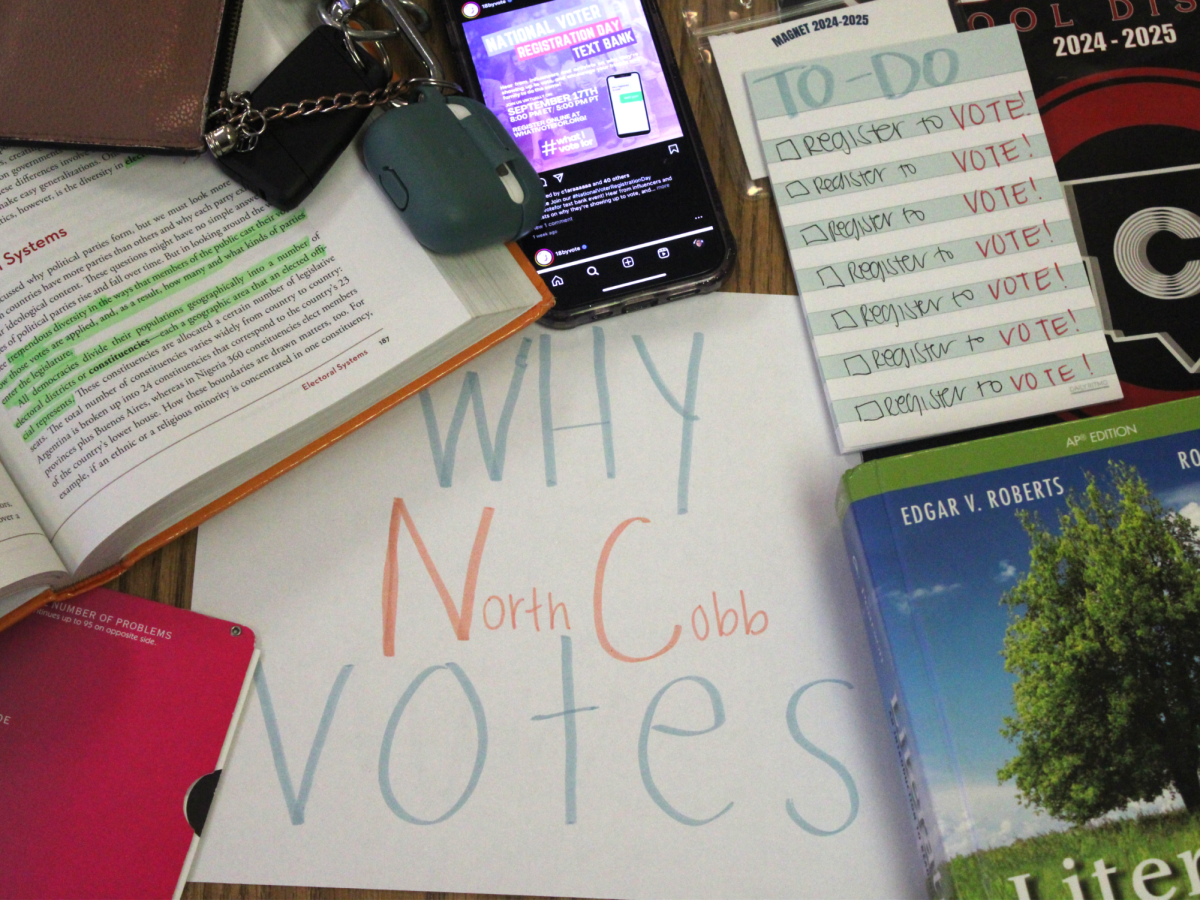
![During an election season, several Americans recall the extensive history — and conflict — with how voting has operated. The vast and often frustrating methods of voting used in decades past can allow modern citizens to appreciate the current methods in place, while also remembering the fond memories that occurred on the civic struggle bus. For Advanced Placement (AP) Macroeconomics and honors government and economics teacher Dr. Pamela Roach, her knowledge and lived experiences of different voting eras allow her to cherish her civic duty, and teach her students to do the same. Although it may not be the most efficacious, I think voting is one act of political participation. You [can] write and email your elected representative, whether it's at the local state or national level. [That] has a place in democracy because how else will those elected officials know what we, the people, want? ‘We the people’ is a powerful phrase, and no one takes the time to actually go and let their voice be heard by these individuals. So yeah, your voice matters,” Roach said.](https://nchschant.com/wp-content/uploads/2024/11/roach-photo-1-1200x900.png)
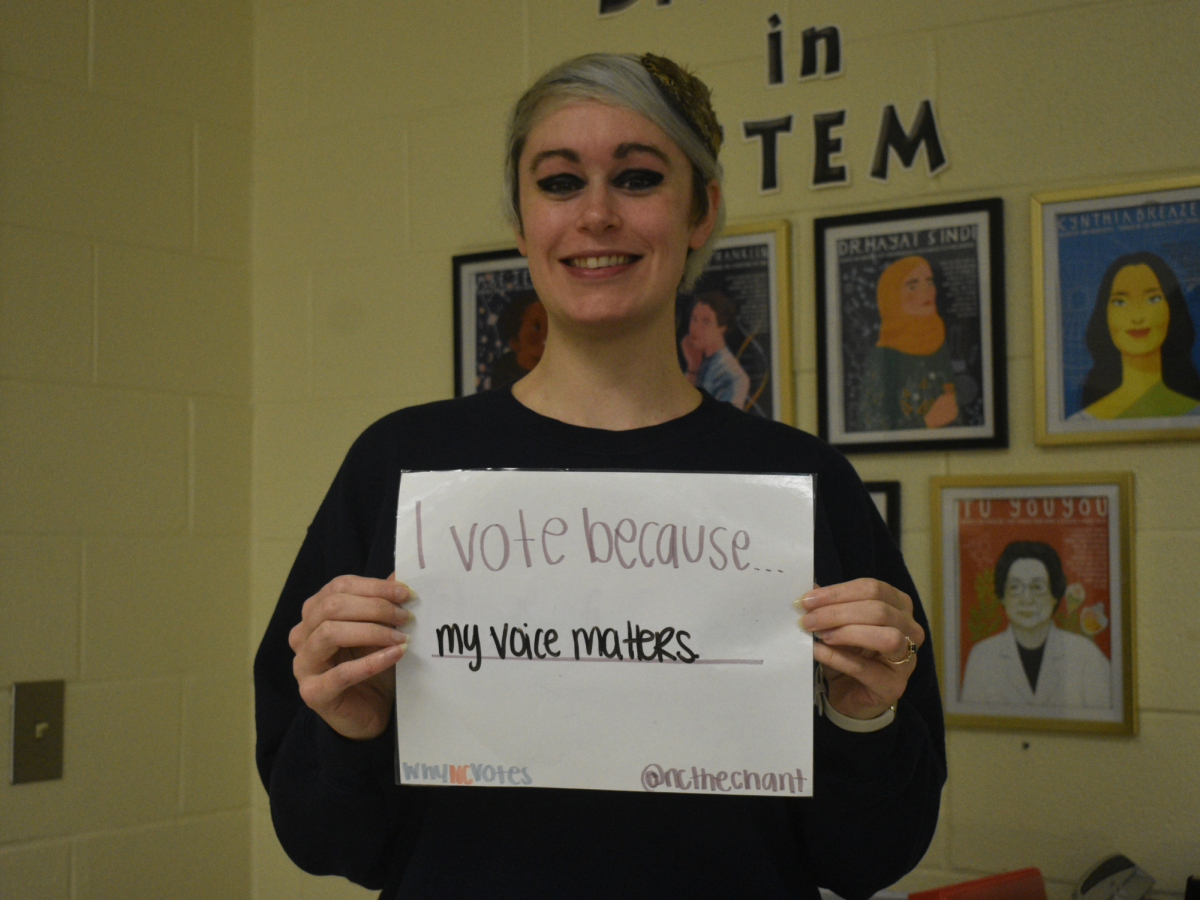
![For several government and politics educators around the U.S., an election season represents a key time to educate their students through tangible examples. In the case of Advanced Placement (AP) Comparative Government teacher Carolyn Galloway, this opportunity not only excites her but fervently aligns with her zeal for democratic processes. Through her personal and professional experiences with voting and government, Galloway encourages her students — both those who can vote and those who can not — to enter into elections informed about any topics on the ballot. “[Voting] impacts your government, especially on the local level, because not a lot of people vote on the local level. Who you vote for, how you vote, and whether or not you understand what you are voting for impact everything from who your tax commissioner is, to who your president is, to what ballot measures pass. All of those impact the way the government works for you,” Galloway said.](https://nchschant.com/wp-content/uploads/2024/10/galloway-photo-2-1200x900.png)
